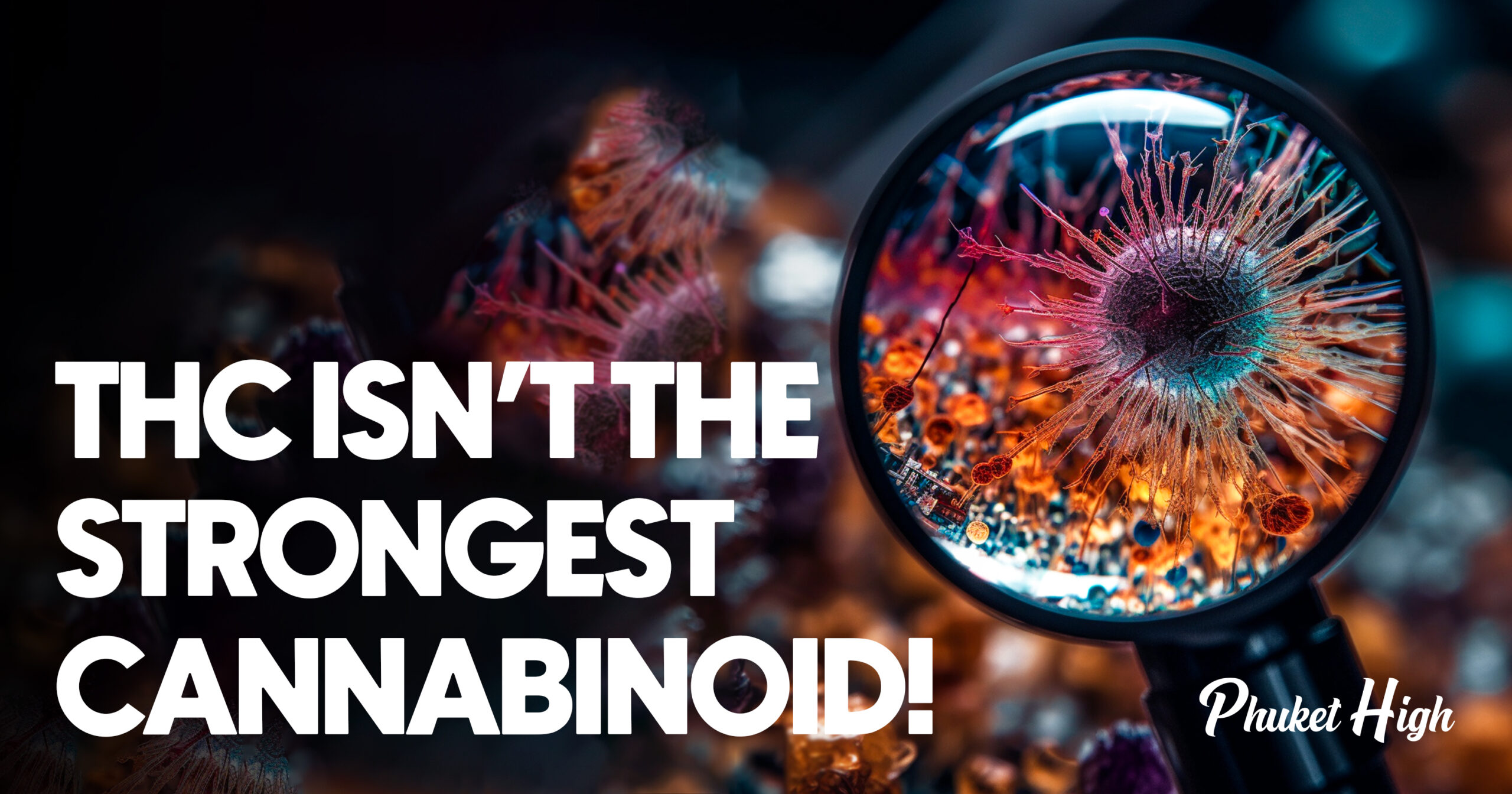Delta 9 THC is not the most psychotropic cannabinoid identified from the cannabis or hemp plant. While it has been the most reported and researched cannabinoid since its discovery in 1964, scientists have discovered more cannabinoids that may be stronger and more potent than THC.
These cannabinoids have longer carbon chains attached to their THC structure hence can interact more readily with the receptors and produce a stronger effect at a lower dose. A research study published in 2020 shows that the higher the number of carbon atoms attached to the alkyl side chain of a cannabinoid, the higher its potency and ability to interact with receptors.
It is pertinent to note that cannabinoid potency depends solely on the number of carbon atoms in the alkyl side chain of the molecule. Based on their cannabimimetic property, a cannabinoid molecule with eight carbon atoms would fit perfectly in the CB1 and CB2 receptors and exert the most activity.
Note that THC refers to a large group of cannabinoids sharing a similar structure to delta-9 THC. Members of this group include but are not limited to compounds like delta-8 THC, delta-10 THC, THCB, THCH, and THCP.
What is THC potency?
THC potency refers to the strength or concentration of delta-9 THC in cannabis. It is often shown as a percentage of THC by weight or by volume. Potency also refers to a cannabinoid’s activity to trigger a psychotropic (mind-altering) effect.
All members of the THC group exhibit some form of psychotropic activity since they mostly interact with CB1 receptors and can interfere with cognitive balance, especially when taken in high doses.
As stated earlier, the potency of these compounds is determined by the number of carbon atoms attached to the structure. A cannabinoid requires at least three carbon atoms to bind to cannabinoid receptors.
Cannabinoids more potent than THC
THCP
THCP or delta 9 tetrahydrocannabiphorol is considered the most potent, naturally occurring cannabinoid in the cannabis or hemp plant. It has 7 carbon atoms in its alkyl ring against the 5 carbon atoms observed in delta 9 THC.
THCP was discovered with its corresponding CBD derivative (CBDP) by a group of Italian scientists in 2019 and has since gained attention due to its high THC potency. THCP is rumored to be 33 times more potent than THC.
According to the researchers, THCP exhibits are more pronounced affinity for CB receptors than THC. It can bind to the CB1 receptors up to 33 times more often than THC, thus producing a more pronounced effect on users.
What are the possible benefits of THCP?
Although a new cannabinoid with a presence in only a few cannabis chemovars, THCP may possess a good level of potential benefits for medical and recreational use. It can provide the benefits of THC at a lower dosage and may be more potent at providing pain relief, sedation, and improving sleep.
While THCP was isolated from the Italian FM2 medical cannabis variety, its presence is yet to report in common varieties around the world. Cannabis varieties with THCP are quite rare, and may most products containing THCP may likely come from synthetic materials and not the cannabis flower.
THCH
THCH or tetrahydrocannabihexol is a 6-alkyl ring cannabinoid that is reported to be 25 times more potent than delta 9 THC. It was first reported in 2020 by a group of Italian scientists who isolated the cannabinoid from the FM2 medical cannabis variety. THCH was discovered alongside CBDH, its corresponding cannabidiol derivative, which is more potent than CBD.
Although there is quite a little research on the potency and efficacy of THCH as a cannabinoid, researchers show that its 6 alkyl carbon ring will allow a more robust interaction with CB1 receptors.
What are the possible benefits of THCH?
Since THCH is 25 times more potent than delta-9 THC, it provides the same effects as THC but at a lower dosage. As the second most potent cannabinoid identified from the cannabis plant, THCH may hold great potential for pain relief, sleep insomnia, and anxiety.
Just like THCP, high THCH strains are quite rare, and the concentration of the cannabinoid is very limited; hence it is important to apply caution before using any THCH-high products as they may come from synthetic sources.
THC-JD
THC-JD or delta-9 tetrahydrocannabioctyl is rumored as a cannabinoid with 8 carbon atoms in its alkyl side chain. While many manufacturers are already hyping the cannabinoid, there is little to no scientific information about its isolation from the cannabis or hemp plant. Although the cannabinoid may exist in nature, its presence is yet to be detected in any cannabis or hemp plant.
Speculations on the possible potency of this cannabinoid show that it may be 19 times more potent than THC. Although we don’t really know how this number was arrived at, we will keep you updated if we find any science-based information on this cannabinoid.
Other cannabinoids that may be stronger than delta-9 THC include but are not limited to;
- THC-O
- HHC
While these cannabinoids may exist in the hemp or cannabis plant, most of the products containing these cannabinoids are synthetic and linked to several health challenges hence may not be recommended, at least for now.
Conclusion
Cannabis has so many untapped potentials hidden in minor cannabinoids. Although these cannabinoids are in short supply, they hold the key to unlocking the several potentials of cannabis for medicinal and recreational purposes. Recently there has been an increased interest in landraces with minor to rare cannabinoids. With this, more research needs to be carried out to understand the safety and efficacy of cannabis for several diseases.
Have you tried THCP or THCH before? We would love to hear about your experience.

